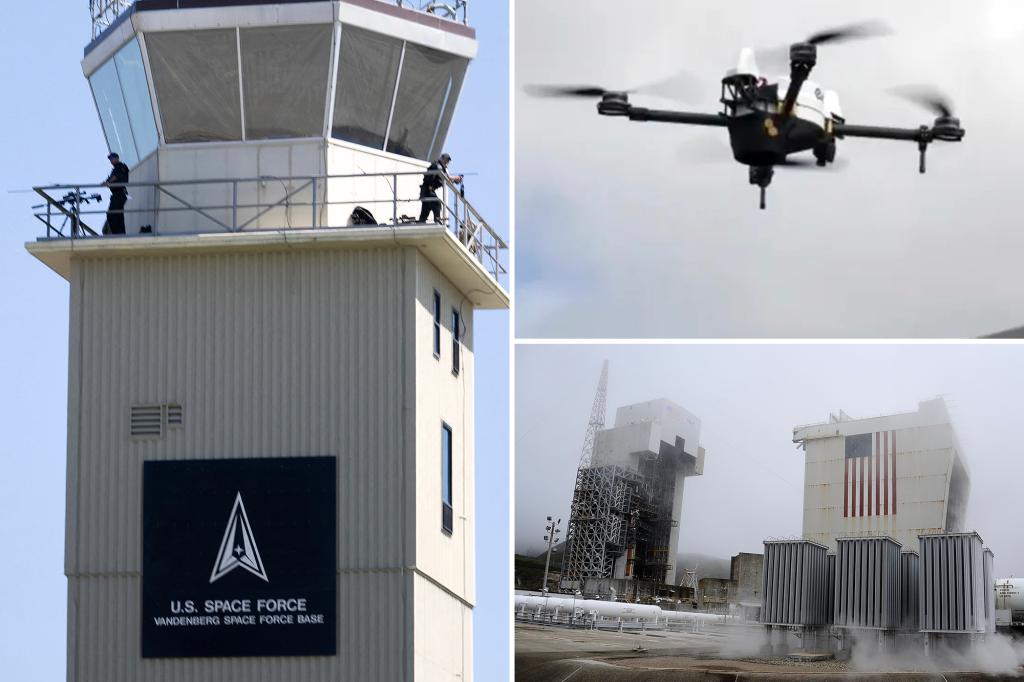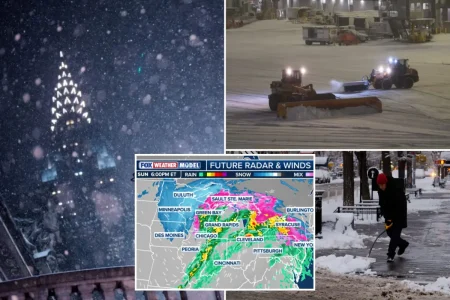This incident underscores the growing concerns surrounding national security vulnerabilities in the face of readily available technology like drones. Yinpiao Zhou, a 39-year-old Chinese citizen residing in Los Angeles, has been charged with two federal offenses following his alleged unauthorized drone flight over Vandenberg Space Force Base, a critical military installation on the California coast. Zhou’s actions, which involved flying a drone for nearly an hour and capturing aerial images of the base, raise serious questions about potential espionage and the ease with which sensitive military sites can be targeted. The incident also highlights the challenges posed by dual-use technology, where commercially available drones can be easily modified and employed for potentially malicious purposes.
The details of the case paint a picture of a premeditated act. Zhou’s pre-flight research, which included a Google search for “Vandenberg Space Force Base Drone Rules” a month before the incident, suggests a deliberate attempt to understand and potentially circumvent security protocols. His alleged communication with another individual about modifying his drone to exceed its altitude limitations further strengthens the suspicion of intentional wrongdoing. These actions point beyond simple recreational drone use and raise concerns about a more calculated effort to gather sensitive information. The fact that Zhou’s companion at the park had recently arrived from China adds another layer of complexity to the situation, raising questions about potential coordination and external involvement.
The potential implications of Zhou’s alleged actions are significant. Vandenberg Space Force Base plays a vital role in national security, supporting West Coast launch activities for the Air Force, Department of Defense, and NASA. Unauthorized access to this facility, especially through aerial surveillance, could compromise sensitive information related to ongoing operations, technological advancements, and strategic deployments. The ease with which Zhou allegedly gained aerial access underscores the vulnerability of such installations to relatively inexpensive and readily available drone technology. This incident serves as a stark reminder of the need for robust security measures to protect critical infrastructure from potential threats.
The incident also highlights the challenges facing law enforcement and security agencies in addressing the evolving threat landscape. The proliferation of consumer drones has made it increasingly difficult to monitor and control airspace around sensitive locations. While drone detection systems at Vandenberg were able to identify Zhou’s drone, the incident demonstrates the limitations of reactive security measures. The need for proactive strategies, including stricter regulations on drone ownership and operation, improved surveillance capabilities, and public awareness campaigns, becomes increasingly apparent. Furthermore, this case raises questions about the effectiveness of existing laws and regulations in deterring malicious drone activity.
The legal implications for Zhou are substantial. He faces charges of failing to register an aircraft not providing transportation and violating national defense airspace, carrying a potential combined sentence of up to four years in prison. The severity of these charges reflects the seriousness of the alleged offense and the growing recognition of the potential threat posed by unauthorized drone operations. The outcome of this case will likely set a precedent for future incidents involving drones and national security, potentially influencing legislation and enforcement strategies. This prosecution emphasizes the importance of complying with drone regulations and respecting airspace restrictions, especially in the vicinity of sensitive installations.
Beyond the immediate legal ramifications, this incident has broader implications for international relations and the ongoing technological competition between the United States and China. While the Justice Department has not publicly speculated on Zhou’s motives, the fact that he is a Chinese citizen, recently returned from China, and accompanied by another recent arrival from China, inevitably raises concerns about potential state-sponsored espionage. Such incidents can contribute to heightened tensions between nations and underscore the need for international cooperation in addressing the challenges posed by emerging technologies. Moreover, this case accentuates the importance of robust cybersecurity measures and counter-intelligence efforts to protect against potential foreign interference in critical infrastructure and sensitive information.











